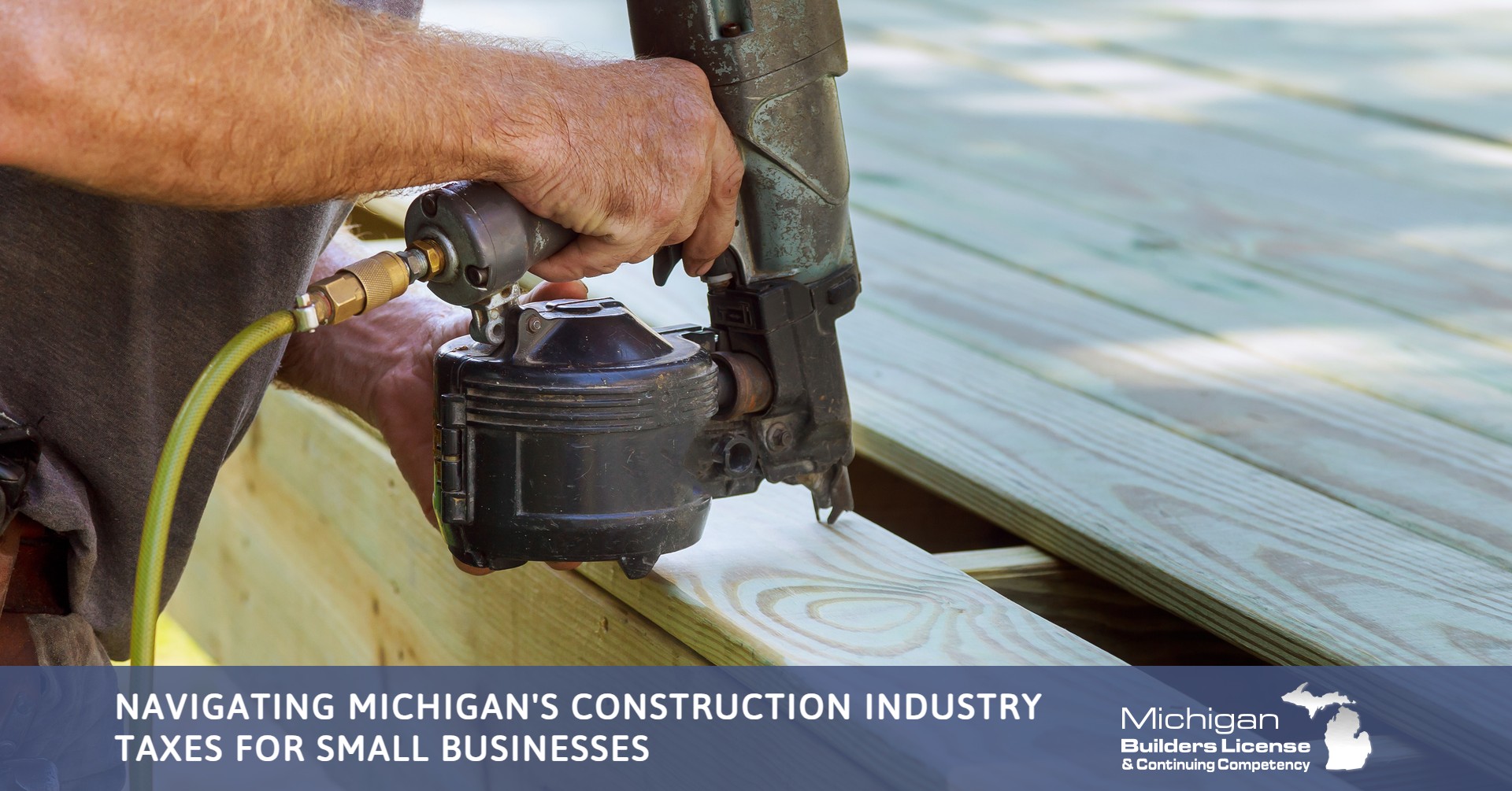The construction industry in Michigan plays a vital role in boosting the state's economy. However, small construction businesses often encounter challenges while dealing with Michigan's intricate tax system. Michigan Builders License's guide simplifies small construction firms' tax landscape by providing information on tax deductions and credits. Additionally, it offers strategies to maximize profitability for small construction businesses in Michigan.
Understanding Michigan's Business Tax Structure
Michigan's Corporate Income Tax (CIT) levies a 6% tax on C corporations and other entities treated as corporations federally. Eligible entities can pay a reduced tax rate of 1.8% on adjusted business income through the small business alternative credit. Entities generating $350,000 or less in gross receipts or with an annual tax liability of $100 or less are exempt from filing or paying under CIT.
Key Deductions and Credits for Construction Firms
- Small Business Alternative Credit: This credit presents a substantial relief chance for eligible small businesses aiming to reduce their tax obligations. It calculates the relief as a percentage of the qualified business income, subject to a cap on the maximum amount a business claims.
- Equipment Deductions: Construction firms can deduct the cost of purchasing heavy machinery, tools, and safety equipment used in their projects.
- Vehicle Mileage Deductions: Firms can deduct expenses based on miles driven for vehicles used in construction projects.
- Employee Wages Deductions: Salaries paid to workers, including benefits, can be deducted, reducing taxable income.
Tax Credits to Leverage
- Energy-Efficient Building Projects: This credit is available for projects adhering to energy efficiency criteria set by the Michigan Treasury Department. It is calculated as a percentage of the additional costs incurred for building materials or systems enhancing the project's energy efficiency. Aiming to promote the construction of energy-efficient buildings, this incentive can reduce owners' operational expenses.
- Investments in Designated Zones: Firms investing in redevelopment or improvement projects in designated zones within Michigan can benefit from additional tax credits.
Proactive Tax Planning Strategies
Proactive tax planning can significantly impact a construction firm's financial health. Key strategies include:
- Deferring Income: By strategically deferring income to the next tax year, firms can manage tax liabilities more effectively, especially in years with fluctuating income.
- Accelerating Deductions: Strategic purchases or investments at the end of the tax year can increase deductions, reducing taxable income.
Choosing the Right Business Structure
The choice of business structure—be it a sole proprietorship, LLC, or S corporation—carries substantial tax implications. It's crucial to select a structure that minimizes tax liabilities and aligns with the firm's long-term goals.
Beyond the Basics: Record-Keeping and Expert Advice
Maintaining meticulous transaction records is fundamental for compliance and strategic decision-making. Furthermore, tax laws continually evolve, making it imperative for Michigan construction firms to seek expert advice from professionals specializing in construction taxation.
Engage with Professionals and Resources
Consulting with a tax professional specializing in the construction industry is invaluable for tailored advice and for confidently navigating the complexities of Michigan's tax laws.
By understanding the intricacies of Michigan's tax landscape, leveraging available deductions and credits, and engaging in proactive planning, small construction firms can navigate the tax terrain more effectively, ensuring long-term profitability and success in the competitive market.





